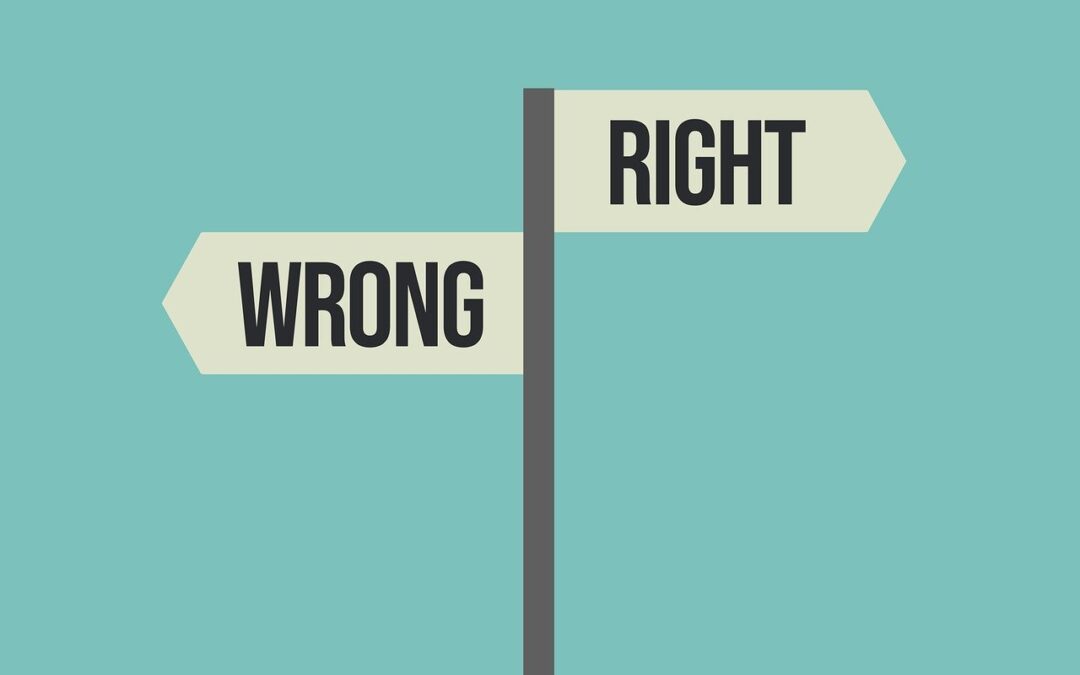Part 2 of 2
In my last blog post, “When Being Right Is Wrong,” I discussed how the need to be right can often come at the expense of relationships and goodwill. Letting go of the need to correct someone or prove a point can be the key to maintaining harmony, especially in business. But what about the opposite scenario? Is there ever a time when it is important to stand firm and be right, even if it means losing a relationship? The answer is yes—sometimes being right is necessary, especially when it comes to protecting your values, your team, and the long-term health of your business.
A great example of this can be seen in the story of Southwest Airlines and its legendary CEO, Herb Kelleher. Southwest was known for its friendly, casual atmosphere and simple, affordable service. But one customer, Mrs. Crabapple, was never satisfied. She repeatedly wrote to the airline, complaining about everything from the snacks to the seating policies to the casual attitude of the staff. Despite her frequent complaints, Southwest’s service remained consistent, and they continued to deliver the same experience they had promised their other customers.
After one particularly negative letter, Mrs. Crabapple’s complaint was escalated to Herb Kelleher himself. Now, Herb had a choice. He could have apologized, tried to placate her, or even promised changes to keep her business. Instead, he wrote back a simple response: “Dear Mrs. Crabapple, We will miss you. Love, Herb.”
Herb’s message was clear. He wasn’t willing to compromise the values and culture that Southwest had built just to please one dissatisfied customer. He wasn’t even interested in explaining his stance. For him, standing firm on what was right for his business and his employees was more important than keeping one difficult customer. He valued the well-being of his staff and the integrity of the Southwest brand over bending to unreasonable demands.
So, when is it right to be right?
When your values are at stake. In business, your company’s values define who you are and what you stand for. If a customer, partner, or even an employee challenges those values, it’s important to stand firm and be right. Compromising on your values can erode the trust that others have in your brand, and once that trust is lost, it’s difficult to regain.
When your team is at risk. In Herb Kelleher’s case, protecting his staff from mistreatment was non-negotiable. If allowing someone to be “right” means sacrificing the morale, dignity, or well-being of your team, that’s a situation where you need to stand your ground. A strong team is your greatest asset, and defending that team is essential for long-term success.
When it’s a matter of principle. Sometimes, standing firm is about upholding a standard or principle that your business was built on. If you allow exceptions or make compromises on these principles, you risk damaging your company’s reputation.
The key difference between when being right is wrong and when being right is necessary often boils down to purpose. If your insistence on being right is about ego, proving a point, or maintaining control, it’s likely going to be damaging. But when being right means protecting your values, your team, or your principles, it’s not just right—it’s necessary.
Herb Kelleher understood that. And while Southwest Airlines lost one unhappy customer, they retained something far more important: the loyalty of their staff and the trust of their millions of satisfied customers.
Sometimes, you have to let go of being right to preserve relationships, but when it’s a matter of protecting what truly matters, being right isn’t just an option—it’s the only choice.
